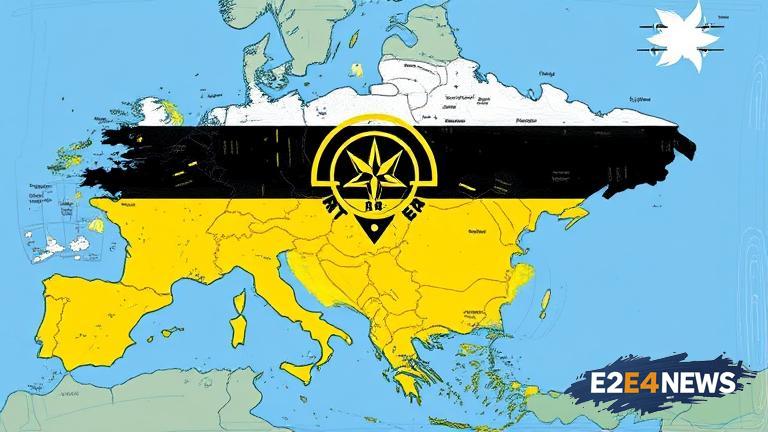The ongoing conflict between Russia and Ukraine has led to a significant escalation in the use of drones, with both sides employing unmanned aerial vehicles (UAVs) to gather intelligence and conduct strikes. Estonia, a NATO ally bordering Russia, is taking proactive measures to enhance its defense capabilities in response to the growing tensions. The Estonian government has expressed concerns about the potential for Russian aggression, citing the country’s geographic proximity to Russia and its history of tensions with its eastern neighbor. In recent years, Estonia has invested heavily in its military, with a focus on developing its cyber warfare and drone capabilities. The country has also been actively engaged in NATO’s collective defense efforts, participating in joint military exercises and contributing troops to international missions. Despite these efforts, Estonia remains vulnerable to potential Russian aggression, particularly in the event of a larger conflict between Russia and NATO. The use of drones in the Ukraine conflict has raised concerns about the potential for similar tactics to be employed against Estonia, with the country’s defense minister warning of the need for enhanced air defense capabilities. In response, Estonia has announced plans to acquire new air defense systems, including the Israeli-made Iron Dome, to bolster its defenses against potential drone attacks. The country has also been working to develop its own drone capabilities, with a focus on using UAVs for surveillance and reconnaissance missions. Estonia’s military has been conducting regular exercises to test its response to potential drone attacks, with a focus on developing effective countermeasures. The country’s defense minister has emphasized the importance of international cooperation in addressing the growing threat posed by drones, calling for greater collaboration between NATO allies to develop common standards and protocols for drone defense. Estonia’s concerns about Russian aggression are not unfounded, with the country having experienced numerous instances of Russian cyber attacks and disinformation campaigns in recent years. The country’s government has accused Russia of attempting to undermine its democratic institutions and sow discord among its population. In response, Estonia has been working to develop its cyber defense capabilities, with a focus on protecting its critical infrastructure and government networks from potential Russian cyber attacks. The country has also been engaged in efforts to counter Russian disinformation, with a focus on promoting fact-based information and supporting independent media outlets. Despite these challenges, Estonia remains committed to its membership in NATO and its participation in international defense efforts. The country’s government has emphasized the importance of collective defense and the need for NATO allies to work together to address common security challenges. Estonia’s preparations for potential Russian aggression are being closely watched by its NATO allies, with many countries expressing support for the country’s efforts to enhance its defense capabilities. The United States, in particular, has been a strong supporter of Estonia’s defense efforts, with the two countries having signed a cooperation agreement on defense and security issues. As the conflict between Russia and Ukraine continues to escalate, Estonia’s preparations for potential Russian aggression are likely to remain a major focus of attention for NATO allies and international observers. The country’s efforts to develop its drone capabilities and enhance its air defense systems are seen as critical to its ability to respond to potential Russian aggression, and its government has emphasized the need for continued international cooperation to address the growing threat posed by drones.
